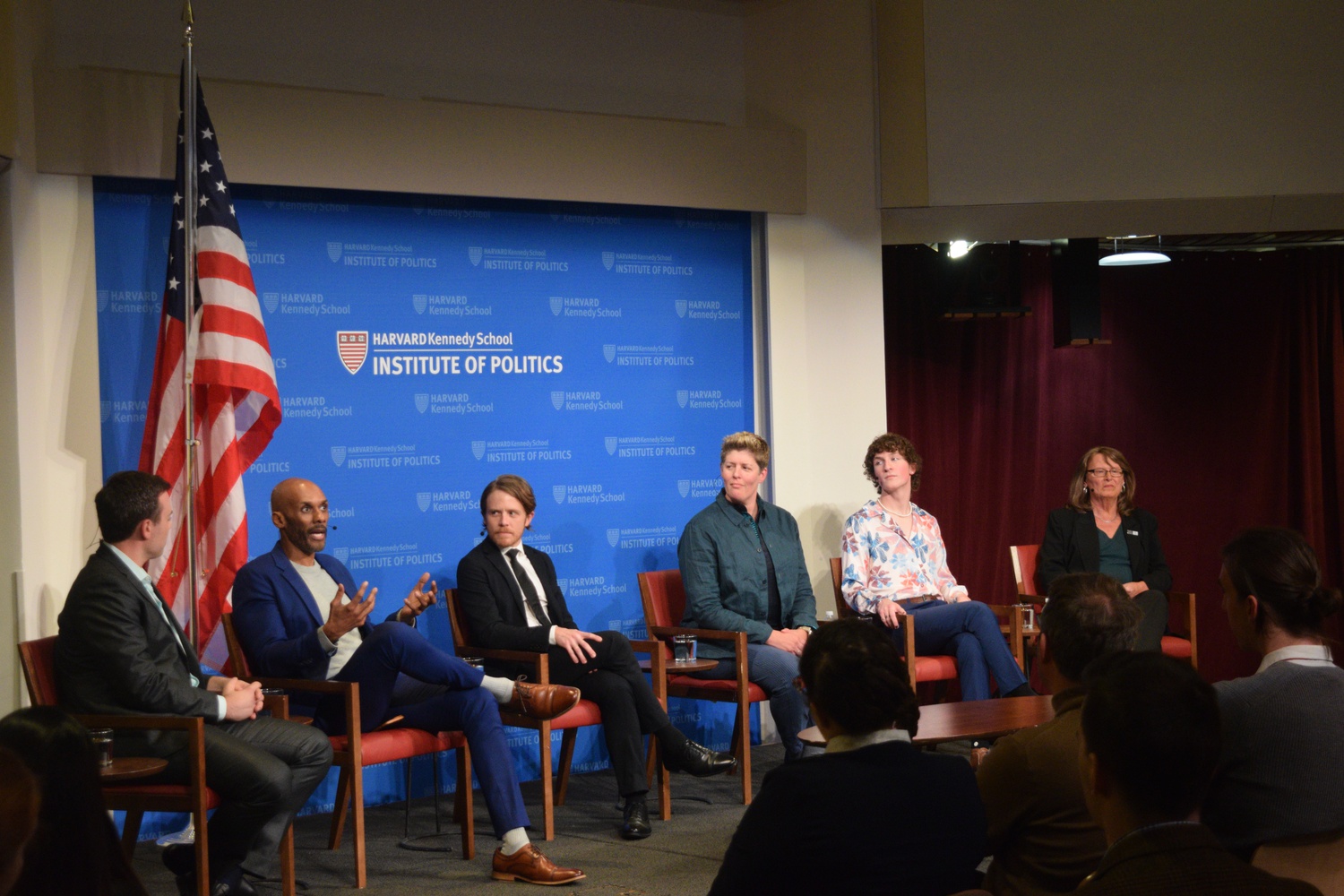
News
Summers Will Not Finish Semester of Teaching as Harvard Investigates Epstein Ties

News
Harvard College Students Report Favoring Divestment from Israel in HUA Survey

News
‘He Should Resign’: Harvard Undergrads Take Hard Line Against Summers Over Epstein Scandal

News
Harvard To Launch New Investigation Into Epstein’s Ties to Summers, Other University Affiliates

News
Harvard Students To Vote on Divestment From Israel in Inaugural HUA Election Survey
LGBTQ+ Advocates Discuss Activism at IOP National Coming Out Day Forum

LGBTQ+ advocates discussed their coming out experiences and activist work in honor of National Coming Out Day at a Harvard Institute of Politics forum on Tuesday evening.
The panel, co-hosted by the IOP and the Shorenstein Center, aimed to increase LGBTQ+ visibility on Harvard’s campus. David Grasso, CEO of Bold TV, moderated the discussion, which featured author Keith O. Boykin, Harvard Kennedy School Fellow Ian Daniel, political commentator Sally R. Kohn, Newton city councilor Holly Ryan, and Zander S. Moricz ’26, a litigant in Florida’s “Don’t Say Gay” lawsuit.
The conversation kicked off with a discussion of individual coming out experiences and the support networks needed to facilitate inclusivity.
“The first person I ever came out to was actually a teacher,” Moricz said. “I think that's why when we see this sacred, safe, guaranteed space being polluted for so many children, what you're seeing is that loss of an opportunity to have a community that is accepting and that will allow you to nurture and identify your identity.”
Moricz’s district in Sarasota, Fla. became one of the first counties to adopt Governor Ron DeSantis’ “Don’t Say Gay” policies, which require district faculty and administrators to report if a student comes out or changes their pronouns to the student’s family.
Moricz led his organization — the Social, Equity, and Education Initiative — in protest against the “Don’t Say Gay” policies.
“We immediately exploded with hundreds of rallies and protests and walk-outs, and we did so much immediate organizing to try to put this in the public sphere,” Moricz said in an interview following the forum.
In the interview, Moricz said his activism comes from a sense of fear and urgency.
“It is not motivation. It’s not inspiration. It’s fear,” Moricz said. “I am directing the efforts in Florida while attending school at Harvard because I’m horrified about what will happen if I let go of all of this work.”
During the panel, Boykin discussed the impact of discriminatory policies on intersectional identities, particularly LGBTQ+ people of color. He said as a student at Harvard Law School decades ago, he recognized the need for progress.
“But as a Black man and a Black gay man — I think a lot of people in the Black community — we’ve been feeling this for hundreds of years. There was never a time we felt, for most of us, when we felt safe in this country,” Boykin said.
While at law school, Boykin co-created the Coalition for Civil Rights, an organization of multiple affinity groups aimed at creating a unified campus activist movement.
In an interview after the event, Daniel said Harvard students are urging administrators to establish LGBTQ+ and anti-racism education practices. He currently works alongside students at the Kennedy School to advocate for systemic change at the University.
“What I was seeing around LGBT issues was disturbing. There was no education around it. There were death threats happening on campus. There was bigoted language in my own cohort,” Daniel said. “I just saw a systemic problem.”
In his interview after the panel, Moricz highlighted the need for widespread LGBTQ+ advocacy.
“This is an emergency, and the reaction needs to be from everyone that this is an emergency,” he said. “Our reactions, our organizing, our movements need to be urgent and aggressive because this is an urgent, aggressive problem.”
Want to keep up with breaking news? Subscribe to our email newsletter.
